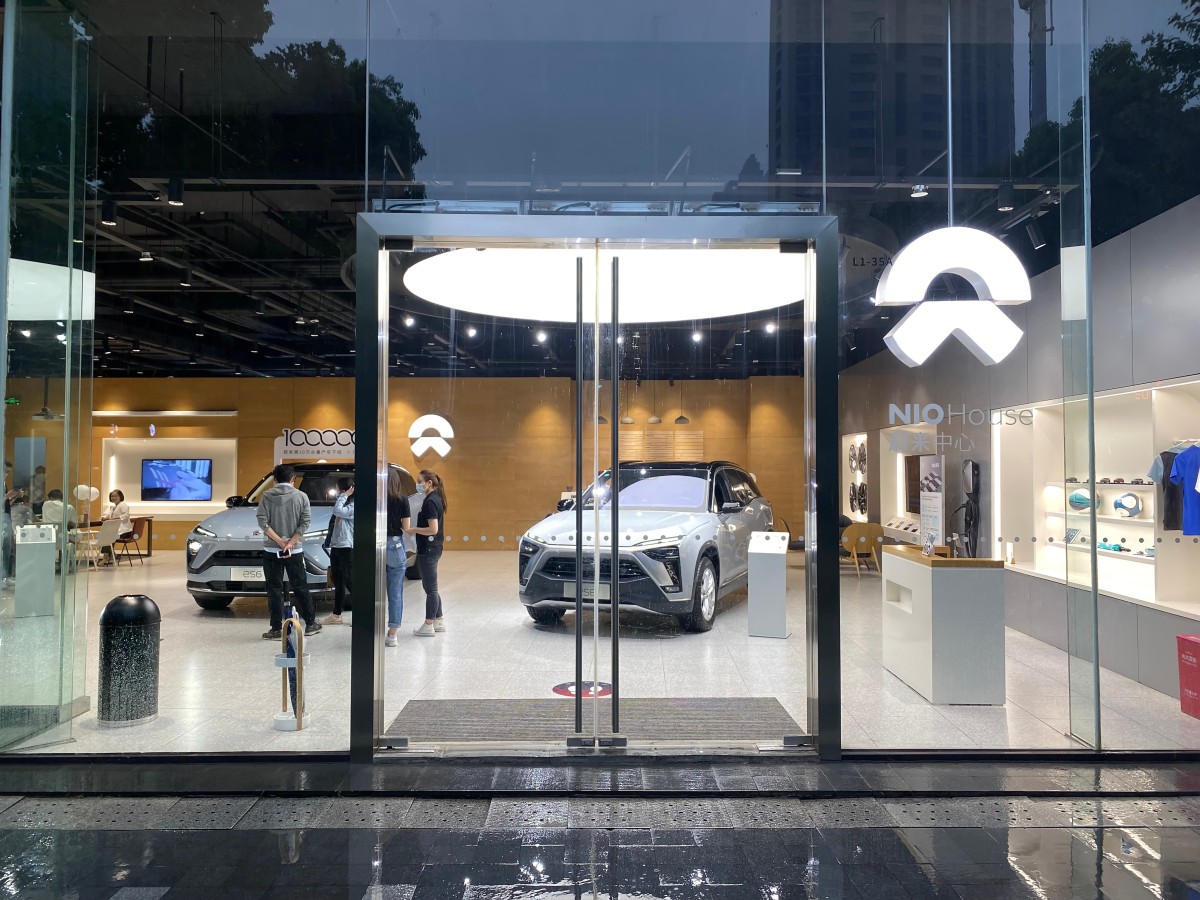Electric vehicle sales in China have skyrocketed over the past year and are expected to surge in 2022 as EV manufacturers strive for higher growth targets.
The China Passenger Car Association (CPCA) says electric car sales may reach 5.5 million in 2022. Meanwhile, the overall New Energy Vehicle (NEV) volume, which includes buses and commercial vehicles, is projected to reach 6 million.
In 2021, China recorded a 154% increase in electric vehicle (EV) sales, reaching 3.3 million units. This is a huge leap from the 1.3 million and 1.2 million sales the country posted in 2020 and 2019, respectively.
The forecast will bring the electric vehicle market share to 22%, and the majority of these vehicles are expected to be fully electric. Several EV manufacturers in China have set their growth targets for 2022 to more than double their numbers in 2021.
The Chinese sales boom is also expected to result in high global EV sales overall, as the country is considered the largest EV market in the world.
Advisory firm and industry analyst ZoZo Go forecasts global EV sales to reach 9.75 million units in 2022, 5.8 million or 60% of which will come from China. In comparison, Europe is projected to sell 2.8 million, while the US is only expected to report 850,000 in EV sales for the year. The remaining 300,000, or 3%, would be spread out to other markets.
Why is the EV sales surge unstoppable?
In the past, most EV sales in China were boosted by subsidies, rebates, and quotas. This year, incentives for purchasing an electric car will go down by 30% compared with last year. Direct incentives are scheduled to be fully removed by 2023.
ZoZo Go says subsidies were no longer a deciding factor in the recent sales increase as local EV manufacturers NIO, Xpeng, and BYD are now gaining customers based on their capabilities.
The analyst group also attributed the success of the EV sector to China’s campaign culture, which refers to the government’s capability of igniting mass campaigns that encourage people to follow suit. ZoZo Go says China is at the point where the EV campaign, which started in 2010, finally got traction.
Lastly, the advisory firm emphasized how Chinese EV manufacturers have taken significant portions of the domestic market from foreign global automakers like Hyundai, Jeep, PSA, and Chevrolet. In 2022, Tesla was the only foreign brand that made it in the top 10 EV manufacturers list in China.
To keep up with domestic producers, global car companies are being forced to bring their best models to the country. Ford has begun manufacturing the Mustang Mach E locally, General Motors is bringing in the Lyriq this year, and Volkswagen plans to haul new models into China.
Tracing the success of Chinese EV makers
A report from credit rating agency Fitch Ratings revealed that in 2021, BYD, Tesla, and SAIC-GM-Wuling comprised almost 50% of China’s total EV sales. BYD sold 594,000 units, while Wuling sold 378,000 units.
Tesla’s China sales are a combination of 240,000 units for the domestic market and 220,000 units for export. The Texas-based automaker sold a total of 936,000 in 2021, representing an 87% jump from its 2020 sales.
Meanwhile, Chinese startups Xpeng, NIO, and Li Auto, made up a combined 9% of the market during the year. Xpeng recorded 98, 155 while NIO had 91,430 EVs sold, and Li Auto reported virtually the same numbers with 90,760.
December 2021was also China’s new record month, with 505,000 NEV cars sold. Figures from CPCA indicated that out of the 505,000, 423,000 were battery electric vehicles (BEVs), while 82,000 were plug-in hybrid electric vehicles (PHEVs). The last month of the year outperformed November, the previous record month with sales of 429,000 NEVs. In 2020, the best month was also December, but at only 210,000 units.
In terms of China’s automobile market share, NEVs have risen to 15.7% in 2021 from 5.8% in 2020. NEV’s market share in December was the highest at 21.3%.
The final month of 2021 was also good for foreign brands competing in the country. Tesla only exported 245 cars in December, meaning most of the 70,847 Model 3s and Model Ys that were sold during the month were to local buyers.
Investment opportunities beyond EV manufactures
According to Bonnie Chan, Portfolio Manager at Eastspring Investments, improving technology, growing environmental concerns and supportive government policies are jointly accelerating the growth and adoption rate of electric vehicles (EVs) in China.
“The rise of the EV industry is presenting investment opportunities beyond EV manufacturers to companies within the EV supply chain that stand to benefit from this growth,” she worte in a market insight. “We are looking at other interesting opportunities within the EV battery supply chain space.”
According to Chan, the world’s largest EV battery makers are based in Asia, led by China, South Korea and Japan. “China’s growing dominance in battery production is no stroke of luck. Thanks to the government’s huge investments and supportive policies, Chinese manufacturers such as CATL and BYD have been able to grow and expand their global market shares. This segment has been the strongest performer over the past 12 months and Chinese battery makers certainly make for compelling investment considerations,” says Chan.
Whether the promising market projections of rising EV sales pan out or not, Chan is confident that the pace of decarbonisation of transportation will continue to gather momentum. “This in turn bodes well for players in the battery supply chain.”


 Australia
Australia China
China India
India Indonesia
Indonesia Japan
Japan Malaysia
Malaysia Philippines
Philippines Singapore
Singapore South Korea
South Korea Taiwan
Taiwan Thailand
Thailand Vietnam
Vietnam




